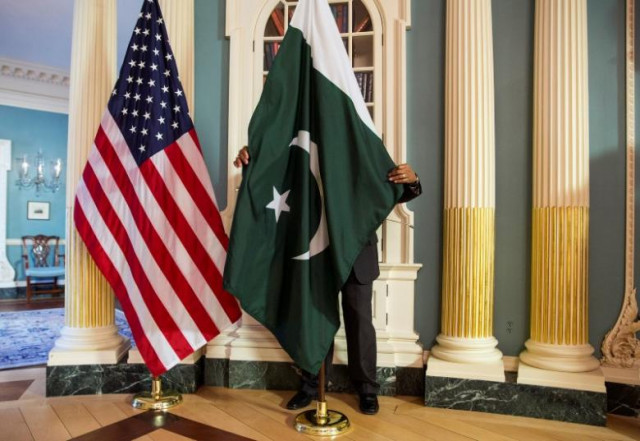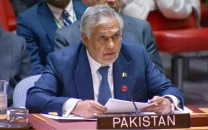Pakistan has ‘no actual extradition treaty’ with US
Top court extends stay on handing over suspect to US

The Supreme Court on Thursday observed that Pakistan had no actual extradition treaty with the US.
A three-member bench of the court, headed by Justice Mushir Alam and also comprising Justice Munib Akhtar and Justice Qazi Muhammad Amin Ahmed, was hearing a petition filed by Talha Haroon, an American national accused of planning a bomb attack in New York, challenging his extradition to the US.
The additional attorney general told the court that there was an extradition treaty between Pakistan and the US.
He added that the US had extradited two suspects, Farid Tawakal and Farooq Tawakal, to Pakistan in 2008.
An official from the foreign affairs ministry said Pakistan had adopted a bilateral agreement signed between the US and the UK in 1932.
Justice Qazi Amin inquired if Pakistan had unilaterally adopted the agreement. “It is not correct to say that all states are equal?” he added.
The judge noted that the court had to see if there was any legal justification for extradition of the accused to the US. “There is virtually no extradition treaty with the US,” he added.
The additional attorney general said that there was an agreement through which the accused were exchanged.
He added that Talha was accused of plotting an attack while living in the US. “Talha Haroon is also a US citizen,” he added.
Justice Mushir Alam asked about when was the alleged crime was committed? The additional attorney general said Haroon was arrested in 2016.
Justice Munib noted that the agreement that was being pointed out was a pre-partition one.
Justice Amin asked how could a pre-partition agreement be binding on Pakistan, He asked the additional attorney general if the agreement he was showing included the crime of terrorism.
The counsel for the accused said that Pakistan enacted a law in 1972 to extradite the accused.
Justice Munib Akhtar said that according to the documents it was unclear that the accused was in America at the time of attack. He said Haroon was accused of funding, not terrorism.
He asked Foreign Office officials to appear before the court at the next hearing properly prepared for the case.
The counsel for the Haroon said his client had been in jail since four and a half years and should be granted bail.
The court rejected the plea of the accused to be released on bail.
It also extended the stay order on Haroon's extradition to the US.
(With input from APP)



















COMMENTS
Comments are moderated and generally will be posted if they are on-topic and not abusive.
For more information, please see our Comments FAQ